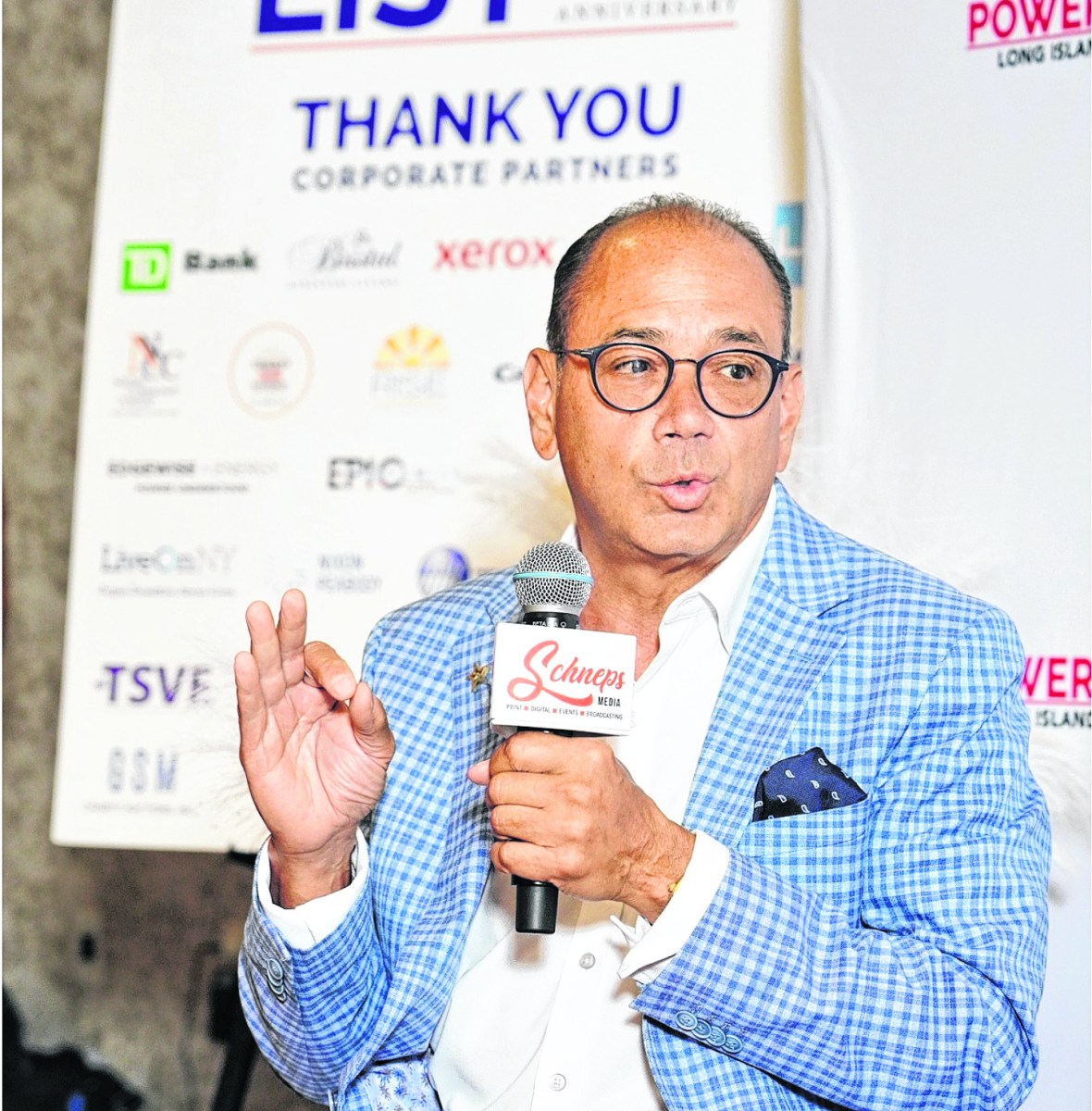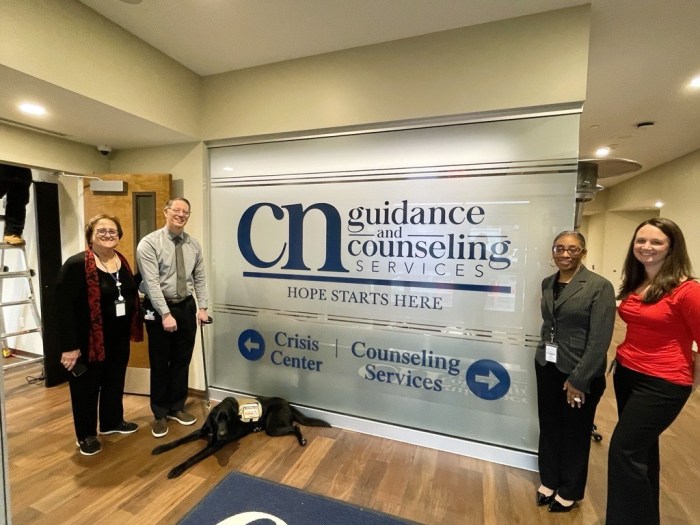Henry Galasso means business. Or, more precisely, he’s all about selling and brokering businesses.
The president of Melville-based East Coast Business Brokers has sold thousands of businesses, ranging from Main Street mom-and-pop stores to multimillion-dollar companies. As Baby Boomers retire, he’s seeing a business sales boom as trillions of dollars in business change hands in the “Great American Wealth Transfer.” He currently has 35 deals in due diligence or going to contract, with many on Long Island and others nationwide.
“We’re doing deal after deal after deal,” Galasso said. “They come in all shapes and sizes, and all different personalities. A lot of Millennials don’t want their parents’ business for whatever reason.”
This generation gap is fueling sales, as Galasso hires more business brokers and expands his office, doubling its size.
“This profession is often the key difference between a business that sells and one that sits on the market indefinitely,” Galasso said. “My job is to make sure the right business sells to the right buyer at the right price with the least risk and the most upside.”
They do competitive market analysis, due diligence, develop deal structures, help with negotiations, introduce advisors and assist in closing deals from “Main Street all the way to the middle market.”
Galasso has sold companies ranging from a $68 million deal for a wholesale manufacturer to $3.4 million for a car wash, as well as a marina, Allstate agencies and more. Current clients include an aerospace company in Maryland for sale for $10 million.
“There’s no deal that’s the same,” Galasso said. “Companies are selling all over. There are companies in corporate parks, retail mom-and-pop shops all over that are selling.”
He’s currently selling a security company in Washington, DC; a supplier to BJ’s Wholesale Club and Costco; a precious metal refinery on Long Island, landscaping companies, a liquor store, bagel stores and much more.
“We do an analysis on the buyer’s financials, look at profitability, cash flow verified in due diligence,” Galasso said. “I coach every seller that I develop exit strategies with.”
He said he spends $160,000 a year on marketing, both his business and the businesses he is seeking to sell as well as using a buyer database he built over decades.
“They opt in to get emails and text messages every day. We market to them,” he said. “I got a listing. I may already have the buyer. We sent an email out.”
READ ALSO: LI health care, social services jobs boom
Galasso said as more people move to Long Island, working remotely, they often want to buy businesses in the region.
“We picked up a huge influx of buyers in Manhattan wanting to relocate to Long Island and out east,” he said. “People who wanted to work remote moved out to Long Island.”
After Covid and as Baby Boomers age, many are seeking to sell, while many others seek to buy, leading to a huge changing of hands and changing of the guard.
“People sometimes sell their business because they’re burned out, a Baby Boomer, and it’s time to move on to the next phase of life, which is retirement,” Galasso said. “After Covid, the cost of being in business has risen exponentially, but the buyers don’t feel that. They buy on the cash flow today.”
Professionals and people from corporate America increasingly seek to buy and own businesses. “Professionals are entering the market as ‘corporate refugees,’” BizBuySell said of former employees seeking “control over their careers through business ownership.”
Nearly 45% of buyers in the second quarter, according to the site, identified as ‘corporate refugees,’ up from 36% a year ago. Another 15% say they are unemployed, compared to 12% a year ago.
“In the lower middle market, I have come across more corporate professionals who are becoming serious about buying a business,” John Pastoor of Calder Capital told BizBuySell.
“We’re getting people from Wall Street who are tired of corporate America and CEOs of companies that want out,” Galasso said. “They want a company they can scale.”
He added that private equity and buyers fly in from countries ranging from Switzerland to Canada to buy businesses.
“Private equity is everywhere, all over the country,” Galasso said. “Private equity comes from anywhere. I had someone fly in from California to buy a bakery chain.”
Business sales are strong in many sectors, but slowed in manufacturing and restaurants, sometimes impacted by financial forces such as tariffs and inflation, according to BuzBuySell.
The number (2,342) of businesses that changed hands through BizBuySell in the second quarter slipped 4% from the prior year. But a year ago, “heightened buyer confidence pushed transactions to a multi-year high.”
Retail sector transactions, ranging from grocery stores to convenience stores, pharmacies and much more , are up 2% year-over-year for the second quarter. Median sale price increased 13%, while median cash flow rose 14% year-over-year.
Service sector businesses, from auto repair to healthcare, “remain in steady demand” according to BizBuysell.
“Buyer demand remains strong, especially for profitable, recession-resilient businesses like home services, healthcare, logistics,” Matt Baas of Calder Capital told BizBuySell. “Many baby boomer owners are still holding off on retirement sales.”
BizBuySell’s second quarter manufacturing transactions dropped 28% year-over-year, while the median sale price fell 7%.
“Tariffs are quietly but significantly influencing the business-for-sale market,” Vipin Singh, of Murphy Business Sales, told BizBuySell.
The average time on market for businesses sold in the second quarter increased by 12 days year-over-year according to BizBuySell.
Galasso said it typically takes 90 days or longer, although he recently closed a $6.5 million deal in Albany involving a Small Business Administration loan that took more than eight months.
“The buyer had to post titles on several properties he owned,” he said regarding SBA regulations.
Sellers often stay on to help transition businesses to new owners.
“The clients don’t get upset. The employees don’t run to the hills,” Galasso added. “Everything runs smoothly.”
He said deals can include equity, debt and a buyer acquiring a majority percentage while sellers may retain equity.
Galasso said he’s working with someone who owns a $6 million electrical contractor with 28 employees and a contractor that does $4 million. The owner of the larger company could stay on to run both businesses.
“That’s attractive for private equity,” Galasso said. “You’re at $10 million in revenue and can consolidate resources.”
BizBuySell noted that stricter SBA lending regulations sometimes complicate or delay deals.
“New SBA lending rules are weighing on the business-for-sale market,” according to BizBuySell, which noted “U.S. citizenship requirements, stricter credit checks, and tighter debt service coverage ratios for small business acquisitions loans.”
Galasso deals with a limitless range of businesses, constantly helping launch people in their new business.
The day we talked, he said he was closing on a sale from an attorney to a couple of a ten-unit pet wellness and grooming business for a few million dollars.
“It’s an exciting career for me,” he said. “I get to be part of success stories that are so gratifying.”


































